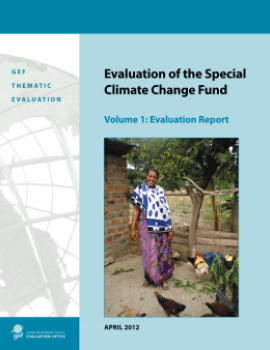Building a Line of Defense against Climate Change: From reactive coping to adaptive capacity in China's irrigated agricultural development
by Bjorn Conrad, Qun Li
Climate change threatens to undermine decades of development achievements in China's Huang-Huai-Hai River Basin. Farmers in the 3H Basin have long been plagued by water scarcity and frequent droughts and floods. Development efforts have succeeded in relieving some of these pressures, but the effects of climate change put these achievements in jeopardy. The Mainstreaming Climate Change Adaptation in Irrigated
Agriculture project, funded under the Special Climate Change Fund (SCCF) and integrated into the World Bank's Irrigated Agriculture Intensification III Project, has been building a line of defense against the looming consequences of climate change on agricultural communities in China. The project was recognized as good adaptation practice in the 2011 World Resources Report as well as the SCCF evaluation of the ndependent GEF (Global Environment Facility) Evaluation Office. This article describes how the project created long-term adaptive capacity for affected communities to support sustainable irrigated agriculture in rural China.
For more information about the GEF Evaluation Office's Evaluation of the Special Climate Change Fund (SCCF), please visit this page.
